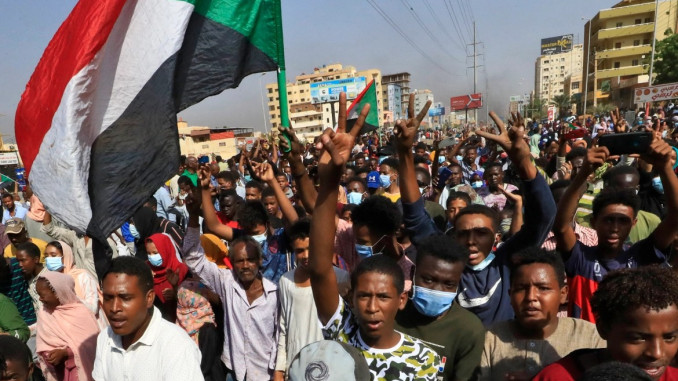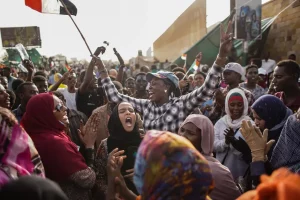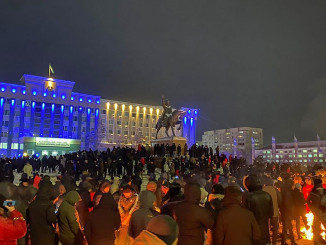
Two years ago, Sudan’s dictator of thirty years Omar al-Bashir was ousted when hundreds of thousands of pro-democracy protesters took to the streets. The military was then pressured by the people and removed him from power. The military leaders and civilian groups agreed to a power-sharing agreement that would end two years later (November 2021) in a civilian government. But on October 25th the military put the civilian leadership under house arrest – in contradiction to the agreement that was put forth following the mass protests of 2019.
Now, nearly two weeks after this anti-democratic military coup, protesters in Sudan again took to the streets, demanding full civilian rule. Hundreds of thousands have marched and protested despite violent repression by the military. One man said during a protest, “It [the coup] has to be overturned. The people of Sudan have spoken. No military general will rule this country again. This is not going to happen.” After soldiers fired on crowds last Saturday, killing at least three and wounding hundreds, the bustling cities of Khartoum and Omdurman were quiet except for protesters. There was little economic or social activity, and many neighborhoods organized “neighborhood resistance committees” and set up makeshift barricades to prevent the military from entering. The people may not yet have the power to control the military, but they have the power to bring the economy to a halt by stopping all work.
The people of Sudan are fighting once again to have some say in their lives and their society. While the only way to fully accomplish this goal is to dismantle the entire capitalist system, the people of Sudan are taking bold first steps. Their examples of collective action offer a small demonstration of what we will need to do all over the world if we want to build a better society –one in which we the people rule ourselves, instead of being ruled by super-rich elites and their state officials.




